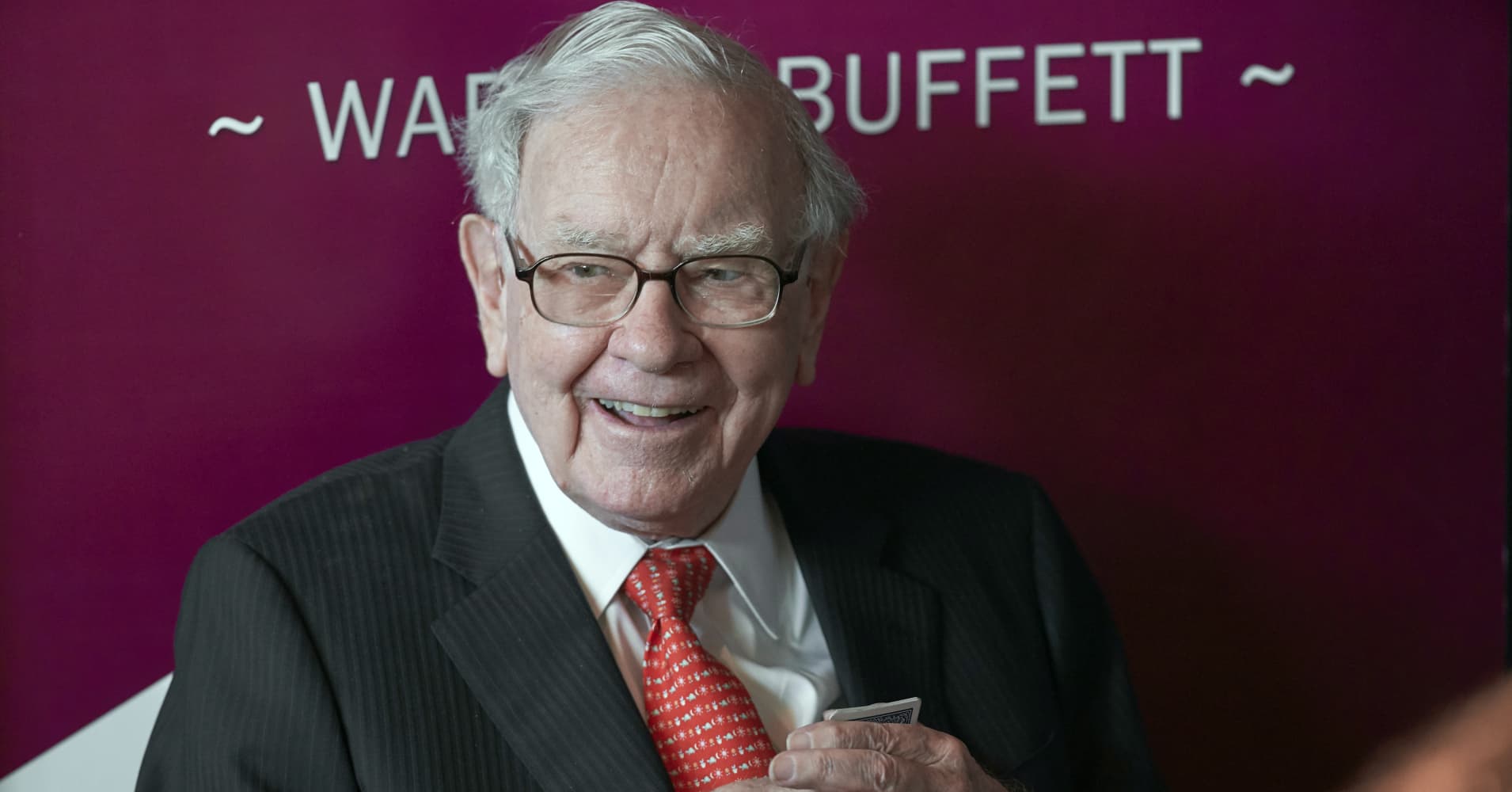
Berkshire Hathaway CEO Warren Buffett isn't afraid to admit when he, or his company, has messed up.
Mistakes are inevitable — and once you realize you've made one, you should own it quickly to prevent additional damage, Buffett wrote in his annual letter to shareholders , published this past weekend. He learned that lesson from his longtime business partner and friend, the late Charlie Munger , he noted.
"The cardinal sin is delaying the correction of mistakes or what Charlie Munger called 'thumb-sucking,'" wrote Buffett. "Problems, he would tell me, cannot be wished away. They require action, however uncomfortable that may be."
Buffett used the words "mistake" and "error" 16 times in his annual letters from 2019 through 2023, he noted in this year's communication. Those missteps ranged from incorrectly assessing job candidates and economic trends to investing in the wrong companies.
DON'T MISS: How to start a side hustle to earn extra money
Most of his errors at Berkshire Hathaway stemmed from reluctance, Buffett said at the company's
: He'd missed opportunities to invest in exciting new companies because they'd asked for too much money.
"The cost of that [has been] many, many billions," said Buffett. And given the company's cautious investing strategies , "I'll probably keep making that mistake."
Munger made his stance on mistake-making clear at a Wesco Financial Corporation meeting in 2016 : You shouldn't dwell on past errors, but you should reflect on them to avoid repeating them.
"Nobody bats a thousand," Munger said. "I think it's important to review your past stupidities so you are less likely to repeat them, but I'm not gnashing my teeth over it or suffering or enduring it."
'Mistakes fade away; winners can forever blossom'
Fessing up to an error can build trust among colleagues, because it shows emotional intelligence and humility , communication expert Matt Abrahams told Make It last year. It can make your peers feel more comfortable admitting when they need help too, prompting more teamwork and collaboration.
Early into his career at Amazon, now-CEO Andy Jassy presented a 220-slide PowerPoint on his team's operating plan to founder Jeff Bezos and other company executives, Jassy said in a video uploaded by Amazon earlier this year. Midway through the presentation, Bezos pointed out that one slide was riddled with mistakes.
Jassy opted for demonstrating humility instead of becoming defensive; he offered an apology, admitted his mistake, and proceeded without fixation. “Should you wish to gain trust: When you claim you have something, ensure you provide it. Should you possess something that isn’t progressing well, critique yourself constructively and make corrections,” Jassy stated in the video.
The positive aspect for Buffett is that, according to his analysis in this year's letter, the impact of his right calls during his time at Berkshire Hathaway appears to outweigh the effect of his incorrect choices.
"As we have observed, a solitary successful choice can yield an astonishing impact over time," he noted, pointing out Berkshire Hathaway’s acquisition of the major insurer Geico, the recruitment of insurance executive Ajit Jain as vice president, along with “the fortunate circumstance of encountering Charlie Munger—a uniquely invaluable collaborator, confidant, and loyal companion.”
"Mistakes fade away; winners can forever blossom," Buffett added.
Want to earn some extra money on the side? Take 's new online course How to Start a Side Hustle to learn tips to get started and strategies for success from top side hustle experts. Sign up today and use coupon code EARLYBIRD for an introductory discount of 30% off $97 (+taxes and fees) through April 1, 2025.
Plus, sign up for Make It's newsletter to get tips and tricks for success at work, with money and in life.